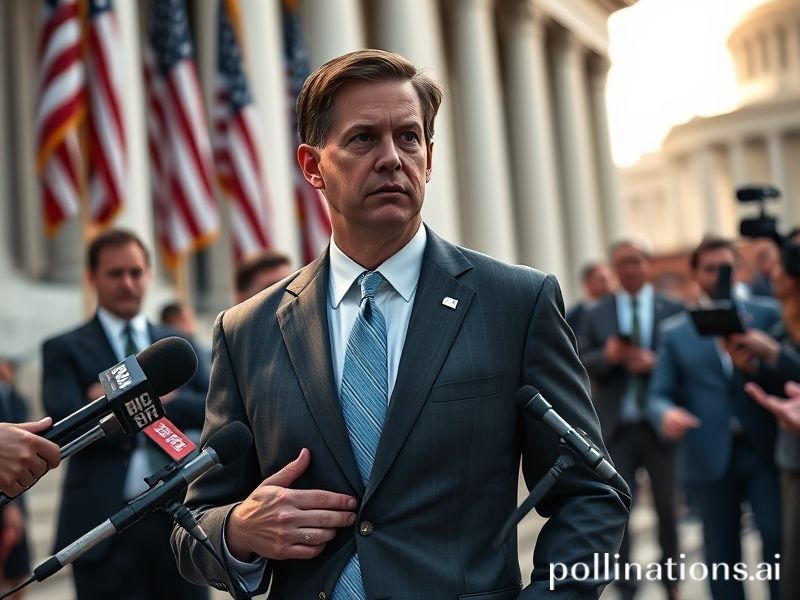Eric Swalwell’s Global Afterglow: How a Congressman, a Spy, and a Dating App Became the World’s Favorite Punchline
Eric Swalwell, the Californian congressman who once ran for president on a platform of “ban the guns, baby,” has become something of an international Rorschach test. From Brussels to Beijing, observers peer at him and see whatever they most fear or covet: an avatar of American overreach, a walking data-breach cautionary tale, or simply the guy whose surname sounds like a British euphemism for indigestion. Yet Swalwell’s saga—equal parts spy thriller, rom-com, and mid-tier Twitter feud—is less about the man himself than about the global amusement park we now inhabit, where national security is filtered through dating apps and the line between diplomacy and DM-sliding has all but vanished.
For the uninitiated: Swalwell once interacted with a woman named Christine Fang, or “Fang Fang,” who, like a Bond villain with a LinkedIn Premium account, allegedly cultivated relationships with U.S. politicians on behalf of China’s Ministry of State Security. Nothing says “geopolitics” quite like a would-be honey trap who also fundraised for local school-board races. The episode cost Swalwell his seat on the House Intelligence Committee and gifted Beijing a propaganda trifecta: they can claim America is both paranoid and easily seduced, preferably at the same Happy Hour.
Across the Atlantic, European intelligence officers watched the Fang Fang caper with the weary air of parents witnessing their teenager learn that fire is, indeed, hot. “At least when we get compromised,” a Berlin-based spook told me over a lukewarm Hefeweizen, “our politicians usually demand a higher grade of champagne.” The subtext: American counterintelligence is now so theatrical that it resembles a Netflix limited series, complete with cliff-hanger subpoenas and a soundtrack of cable-news gasping. Meanwhile, China’s state-run tabloids ran headlines about “love-struck congressmen” next to ads for budget smartphones—soft power wrapped in schadenfreude and free shipping.
In the Global South, the Swalwell affair is filed under “Yankee Self-Owns.” Kenyan analysts note that while U.S. lawmakers obsess over TikTok’s data policies, their own phones are still haunted by Cambridge Analytica’s ghost; Brazilians compare Swalwell’s texting habits to their own Congress, where lawmakers have been caught literally handing bags of cash to each other on live television. The takeaway: everyone’s corruption is tacky, but Washington’s is curated.
The broader significance, then, is not that a single congressman may have been flattered by a foreign operative; it’s that the entire architecture of trust—between allies, between electorates and elected, between dating-app algorithms and common sense—now resembles a Jenga tower erected during an earthquake. Swalwell is merely the latest block to wobble. Nations that once spied with microfilm and dead drops now weaponize Tinder bios and Venmo receipts. The Cold War had defectors leaping over Berlin walls; the Lukewarm War has staffers screenshotting thirst-traps.
Which brings us to the kicker: Swalwell was re-elected in 2022 with a comfortable margin, proving that constituents care more about potholes than potential kompromat. If that sounds depressing, console yourself with the thought that somewhere, in a dimly lit room in Ankara or Astana, a junior intelligence officer is being told, “Comrade, your mission is to infiltrate the Sacramento Subreddit.” The world’s smallest violin plays a techno remix.
In the end, Swalwell’s international legacy may be that he reminded everyone—friend, foe, and vaguely amused bystander—that America’s soft underbelly isn’t ideological; it’s romantic. The nation that weaponized Hollywood now finds itself weaponized by its own lonely hearts. The rest of the planet, nursing its own heartbreaks, can only shrug and swipe right on the absurdity.







